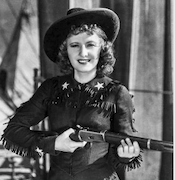|
Leon Trotsky 2012 posted:As part of the process of ending Title 42, the DHS is expecting a surge of ~400,000 new migrant border crossings. Instead of turning people away, they are phasing in a new system to speed up processing times by letting the low-risk crossers or people with family they can stay with just come into the country, but they have to either take a smart phone or an ankle bracelet to make sure they don't just leave. How wonderful. You must not mistreat or oppress foreigners in any way. Remember, you yourselves were once foreigners in the land of Egypt.
|
|
|
|

|
| # ? May 25, 2024 07:38 |
|
I'm wondering who the people are who are given a choice of a free smart phone or a wearable GPS tracker and choose the GPS jewelry instead.
|
|
|
|
Jaxyon posted:You left out how a lot of this "inflation" is just companies padding margins to make up up for lost profit's from the pandemic. Framing profit-taking as merely going after "lost profits" is a ridiculous face-saving measure that ignores the core conceit of Capitalism. Oh, are companies price-gouging just enough to make themselves whole, and then they'll decide to lower prices again, out of the goodness of their hearts? That's loving ridiculous. Market conditions allowed them to raise prices for sheer profit because there were no alternatives. Prices won't go down unless market conditions change, or government regulation stops them. And neither of those situations has anything to do with "lost profits" from the year before.
|
|
|
|
VitalSigns posted:Woof So it turns out people stop liking you when you say you’re going to help them and then let the help just dry up. Huh.
|
|
|
|
Also, there is some kind of metaphor or ironic message in the fact that the U.S. Government is trying to get migrants looking for better economic conditions to take tens of thousands of free smartphones made by people who work at factories with suicide nets because they are much cheaper to buy than a GPS device, but I can't quite find a pithy way to phrase it.
|
|
|
|
Leon Trotsky 2012 posted:Also, there is some kind of metaphor or ironic message in the fact that the U.S. Government is trying to get migrants looking for better economic conditions to take tens of thousands of free smartphones made by people who work at factories with suicide nets because they are much cheaper to buy than a GPS device, but I can't quite find a pithy way to phrase it. I mean yea but different parts of the world so it's not like they're the ones who made the phones that they are getting for free, to track their every movement, in the land of opportunity
|
|
|
|
Here's some insane research and polling from Pew in Philadelphia. The wildest things: quote:Among Pew’s starkest findings was that the number of residents who said crime, drugs, and public safety was the No. 1 issue — about 70% — has increased by 30 percentage points compared with August 2020, the last time Pew conducted such a survey. It’s the highest percentage any topic has received since Pew started polling more than a decade ago. The highest ANY topic has ever reached. quote:That tracks with what Anton Moore said he hears and experiences every day. A longtime community activist, Moore runs a nonprofit called Unity in the Community, which provides job training and other services to at-risk children and teenagers. He also frequently attends vigils in remembrance of victims of gun violence and comforts the families of those who have been lost. quote:When asked an open-ended question about the most important issue facing the city, 70% gave the answer crime, drugs, and public safety—a noteworthy increase of 30 percentage points over 2020 and the highest percentage recorded by Pew polling. The concern about public safety is shared across the city by all demographic groups and neighborhoods. quote:Since the first poll in 2009, Pew has asked Philadelphians how safe they feel in their neighborhoods at night. That number dropped below 50% for the first time in the 2020 poll. The decrease continues in 2022, with only 44% of Philadelphians saying they feel “completely” or “pretty” safe in their neighborhoods at night. There's a dramatic racial difference in who feels safe.  quote:Overall, nearly two-thirds of Philadelphians indicate that they had heard gunshots in their neighborhood during the previous 12 months. And 85% of Philadelphians say that gun violence is getting worse, a view held by nearly all demographic groups and neighborhoods in the city. Furthermore, 48% of Philadelphians said either they, an immediate family member, or a close friend had been the victim of a violent crime such as an assault, robbery, or gun violence in 2021.  quote:The Pew survey found a swing in attitudes about policing, showing that 61% of respondents in January said the city needs more police, which is up from 45% in August 2020. Just 8% said the size of the police force should be reduced, down from 14% in 2020. Black and Hispanic respondents were more likely to say the city doesn’t have enough police, while white people were twice as likely as Black people to say the city has too many. And those more likely to say that the city had enough or too many police officers were either younger, had annual income above $100,000, or have a college degree. Young white people with college degrees who make over $100,000 per year want fewer police; while Black and Hispanic people of all demographics say they don't have enough. White people were over 2x more likely than Black or Hispanic people to say they need fewer police.  People without a college degree were hit much harder by the pandemic than the average person or person with a college degree. quote:When asked about their personal financial situation, about one-third of Philadelphians say they are worse off today than when the economy shut down in March 2020. Answers varied depending on the respondent’s educational attainment, race, and income: Those with lower levels of educational attainment were especially challenged, with 40% of those with a high school diploma or less and 38% of those with just some college saying they were worse off financially. Less than 20% believe that life will "return to normal" in the next year and 52% are either "unsure" or think life will never go back to how it was pre-pandemic. quote:Philadelphia residents expect it to take substantial time to get their lives back to the way they were before the pandemic, if ever. More than one-third of Philadelphians believe things will never get back to the way they were, with an additional 14% expecting it to take more than a year. A full 22% of residents are unsure when life will return to the way it was before the pandemic. This leaves less than 1 in 5 who see a return to pre-pandemic life within a year. quote:And looming issues of violence and poverty continue to dampen the city’s outlook. Just 53% of Philadelphians rated the city as an “excellent” or “good” place to live, down from 66% in 2020. Only 58% of residents expect to be living in the city in five to 10 years, down from 72% in 2019. Just over half of all residents think they will still be living there in 5-10 years. Down from 72%. https://twitter.com/hollyotterbein/status/1511902081732558856 https://www.pewtrusts.org/en/research-and-analysis/issue-briefs/2022/04/pew-poll-gun-violence-covid19-have-hit-philadelphians-hard Leon Trotsky 2012 fucked around with this message at 15:45 on Apr 7, 2022 |
|
|
|
Big shocker that those who are white and who earn enough to live in safe communities think police presence is sufficient or excessive.
|
|
|
|
I'm sure a lot of people who are saying they won't be living in the city in 5-10 years are just expressing disapproval or pessimism and won't actually leave for various reasons, but losing 42% of the population in 10 years is basically speed running Detroit and the most surprising part to me.
|
|
|
|
Willa Rogers posted:Big shocker that those who are white and who earn enough to live in safe communities think police presence is sufficient or excessive. It's the same demographic that will accost and surveil you for letting your dog pee on the median on the street they live on and threaten to call the cops because they're so up their own rear end they don't realize that female dogs squat when they pee Ask me how I know lmao
|
|
|
|
Mellow Seas posted:Yeah, there's basically no question that the pollster in question is ideologically centrist, and they were looking for this result. The poll was done by Schoen-Cooperman Research. He wants to be perceived as centrist, but that's not really where he stands nowadays. Although he came up through the Clinton camp, he's one of those HillaryIs44 types who spent 2008-2016 opposing Obama at all costs, only to end up so deep in bed with his right-wing allies of convenience that he wouldn't back Hillary in 2016 because she was too far left and would cause too much partisan division (though after being somewhat disappointed with the Trump era, he seems to be all-in on Hillary 2024). His "Democrat who opposes the Democratic Party" branding has been useful to his career ever since he joined Fox in 2009, but his time as a Dem consultant is long in the past, as he's spent the last fourteen years as little more than right-media's token Democrat. Frankly speaking, Doug Schoen is not someone I'm gonna take ideological advice from, nor is he someone I'm gonna trust polls from. After all, here's his ideological advice for the Dems back in 2017, in the wake of Trump's election: https://www.nytimes.com/2017/10/17/opinion/why-democrats-need-wall-street.html quote:Why Democrats Need Wall Street Not exactly someone who seems to be in tune with the electorate.
|
|
|
|
Lib and let die posted:It's the same demographic that will accost and surveil you for letting your dog pee on the median on the street they live on and threaten to call the cops because they're so up their own rear end they don't realize that female dogs squat when they pee IN THIS HOUSE, WE BELIEVE... ...in Sentry home security! (The no. of people in my suburb who have those lib signs but also security-system warnings never fails to make me lol.)
|
|
|
|
Leon Trotsky 2012 posted:We're going vintage with the newest immigration scandal. The DHS Secretary is coming to congress for an unrelated hearing, but Josh Hawley says that they are going to focus the entire 2-hour hearing on the throwback scandal that is sweeping the nation. The GPS tracking devices we're putting on immigrants are too fancy. That's some good dystopian nightmare.
|
|
|
|
Willa Rogers posted:IN THIS HOUSE, WE BELIEVE... In Seattle it was pretty much a guarantee they’d be right next to a Recall Sawant sign.
|
|
|
|
Nucleic Acids posted:So it turns out people stop liking you when you say you’re going to help them and then let the help just dry up. Huh. But vote blue no matter who because, uh, (USER WAS PUT ON PROBATION FOR THIS POST)
|
|
|
|
Willa Rogers posted:IN THIS HOUSE, WE BELIEVE... When I bought my house it came with a sign in the front saying it has some home security system or another. It doesn't actually have one, but I figured just keeping the sign there's about as effective
|
|
|
|
Gumball Gumption posted:The GPS tracking devices we're putting on immigrants are too fancy. That's some good dystopian nightmare. It's not even that they're too fancy, it's that GPS tracking is foolish because according to them immigrants should all be in prison anyway
|
|
|
|
Willa Rogers posted:IN THIS HOUSE, WE BELIEVE... What's wrong with having home security?
|
|
|
|
How are u posted:What's wrong with having home security? "we welcome everyone with open arms" *sign next to drawing of rottweiler on home-security signage* (USER WAS PUT ON PROBATION FOR THIS POST)
|
|
|
|
The Washington Post put out an unrelated long-term investigation on gun violence in the U.S. today on the same day as the Pew study. The whole thing is long and depressing, but worth a read. This the first part of a multi-part investigative series the post is doing on gun violence that took over 3 years to complete. The craziest parts: - 41 children per day in the U.S. lose parents to gun violence. - 367 people per day are shot in the U.S. - 136 people are shot and killed per day in the U.S. - 231 people are shot and survive per day in the U.S. None of those include suicide by gun or self-injuries with a gun. It is extremely difficult to get accurate information on gun violence and required requesting and analyzing sever years of records from every individual police agency in 20 major metro areas. More than 80% of crimes involving death or serious injury in the U.S. are caused by a gun. Almost every single gun death in America is related to either drugs/crime related to drugs, an accident, suicide, or domestic dispute. https://twitter.com/JohnWoodrowCox/status/1512083751601287171 https://twitter.com/JohnWoodrowCox/status/1512083759960506379 https://twitter.com/JohnWoodrowCox/status/1512083776456867841 https://twitter.com/JohnWoodrowCox/status/1512083809633595397 quote:Orphaned by gun violence: Two kids, two shootings, two parents gone
|
|
|
|
Willa Rogers posted:"we welcome everyone with open arms" I don't really see the disconnect between welcoming people into your country and society with open arms, and also not wanting your personal home where you and your family live to be burgled.
|
|
|
|
How are u posted:I don't really see the disconnect between welcoming people into your country and society with open arms, and also not wanting your personal home where you and your family live to be burgled. They don't work though, security systems are a good indicator you're a rube being fleeced by people taking advantage of your fears. Ring is building out a huge surveillance system for police and Amazon on the back of that fear. The security industry sucks. Gumball Gumption fucked around with this message at 16:35 on Apr 7, 2022 |
|
|
|
Gumball Gumption posted:They don't work though, security systems are a good indicator you're a rube being fleeced by little telling advantage of your fears. Ring is building out a huge surveillance system for police and Amazon on the back of that fear. The security industry sucks. I don't think she was commenting on whether the security works or not, correct me if I'm wrong, Willa. It seemed she was making fun of the idea of somebody who welcomes people into society for who they are, and also wants a secure home.
|
|
|
|
Yeah that's indistinguishable from a conservative saying "if you love the homeless so much why don't you give them your house"
|
|
|
|
How are u posted:I don't think she was commenting on whether the security works or not, correct me if I'm wrong, Willa. It seemed she was making fun of the idea of somebody who welcomes people into society for who they are, and also wants a secure home. I have a secure home without putting up signs that broadcast to the world how secure my home is.
|
|
|
|
How are u posted:I don't really see the disconnect between welcoming people into your country and society with open arms, and also not wanting your personal home where you and your family live to be burgled. It's probably worth a lot more of an
|
|
|
|
Gumball Gumption posted:They don't work though, security systems are a good indicator you're a rube being fleeced by little telling advantage of your fears. Ring is building out a huge surveillance system for police and Amazon on the back of that fear. The security industry sucks. It depends. According to studies, just putting a sign in your front yard that says you have a security system can reduce your chance of being burgled (even if you don't actually have a security system) and having visible cameras and alarms also dramatically reduces your chance of being burgled. But, for most people, the likelihood of getting burgled combined with the average value of the most commonly burgled materials means that an expensive security system is usually not worth the money. https://www.consumeraffairs.com/homeowners/how-to-deter-burglars.html According to science, the best thing to do is not get a security system, but do get a dog and put a sign on your yard/windows claiming you do have a security system.
|
|
|
|
Lib and let die posted:It's probably worth a lot more of an Wait are we talking about stuff like those lovely webcams everywhere or stuff like those services that call the security company if a window is open or broken and you didn't press a button or whatever first? Leon Trotsky 2012 posted:It depends. Lol glad to see I was right, laziness wins again
|
|
|
|
Leon Trotsky 2012 posted:According to science, the best thing to do is not get a security system, but do get a dog and put a sign on your yard/windows claiming you do have a security system. Fake camera that don't do anything are also cheaper than real ones
|
|
|
|
Security system might at least come in handy for rear end in a top hat neighbours and getting cool animal photos.
|
|
|
|
Ghost Leviathan posted:Security system might at least come in handy for rear end in a top hat neighbours and getting cool animal photos. Based on videos I have seen on the internet, a home security system is used 85% of the time for getting a refund from Amazon/UPS/FedEx by sending them a video of their driver throwing your package onto your porch and the remaining 15% of the time is used to film videos of animals doing weird things when nobody is home.
|
|
|
|
85% reporting bad deliverymen 14% animals doing weird poo poo 1% winning disputes with your neighbors
|
|
|
|
Lib and let die posted:It's probably worth a lot more of an Because that is exactly what it is unless you roll your own in-house security system.
|
|
|
|
This is actually a pretty big deal. I don't know if they have done studies about how effective the mandatory anti-union propaganda meetings actually are at changing votes. But, at the very least, this was the most heavy-handed example of an employer using their power over staff to impact a union vote. https://twitter.com/MorePerfectUS/status/1512077807169376263
|
|
|
|
Willa Rogers posted:Big shocker that those who are white and who earn enough to live in safe communities think police presence is sufficient or excessive. I remember polling done a few months after the 2020 BLM protests showing most black Americans preferred the same level of policing with the the rest being split between more and less. The discourse on SA on the time would have had you believe it was overwhelming defund and reduce the police, there really seems to be a huge disconnect on what black Americans want vs leftists think is best w/r/t to police and crime
|
|
|
|
virtualboyCOLOR posted:Because that is exactly what it is unless you roll your own in-house security system. When I was growing up, my parents' backyard was adjacent to the backyard of a murderous, violent enforcer of the criminality of poverty and the dude was a legit compound-brained nutjob - if I so much as stepped out onto the back porch at night for a smoke, 10 floodlights would come blasting to life and just annihilate any semblance of tranquility. Once the piece of poo poo went on vacation for a week, his hackjob home security system got set off by something and the klaxon went on blaring for like, 2 days before it wore itself out. My parents called the local murderous, violent enforcers of the criminality of poverty and they just told him since it wasn't a professional security system, there was nothing anyone could do about it until the homeowner came home.
|
|
|
|
It's like dashcams, they serve as potentially invaluable resources for a number of things but most of the time they'll just be useful for YouTube compilation videos.
|
|
|
|
Trevorrrrrrrrrrrrr posted:I remember polling done a few months after the 2020 BLM protests showing most black Americans preferred the same level of policing with the the rest being split between more and less. The discourse on SA on the time would have had you believe it was overwhelming defund and reduce the police, there really seems to be a huge disconnect on what black Americans want vs leftists think is best w/r/t to police and crime It's always fascinating to discuss police issues. I can sit down with my deeply conservative father-in-law and we will agree that cops waste too much time needlessly harassing people over minor traffic violations, controlled substances, and generally making life worse for individuals whenever possible...but then he breaks down into a frothing rage if someone suggests that maybe they don't deserve more funding as a reward for being the pieces of poo poo they are.
|
|
|
|
Gumball Gumption posted:I have a secure home without putting up signs that broadcast to the world how secure my home is. Ok? That's great, I'm glad you have a secure home. I assume you also welcome all people into society. If / when I own a home I plan to make sure it's secure, too. Probably by just putting a light with a motion sensor up, and/or a fake camera.
|
|
|
|

|
| # ? May 25, 2024 07:38 |
|
Lib and let die posted:It's always fascinating to discuss police issues. I can sit down with my deeply conservative father-in-law and we will agree that cops waste too much time needlessly harassing people over minor traffic violations, controlled substances, and generally making life worse for individuals whenever possible...but then he breaks down into a frothing rage if someone suggests that maybe they don't deserve more funding as a reward for being the pieces of poo poo they are. Copaganda and regulatory capture have made drat well sure that while well-meaning liberals are willing to acknowledge at least some of the awful poo poo cops do, they're programmed to be utterly hostile to literally any viable solutions to the problem.
|
|
|




















